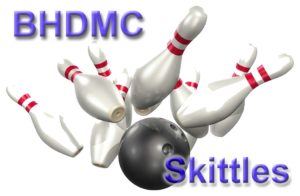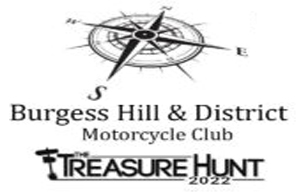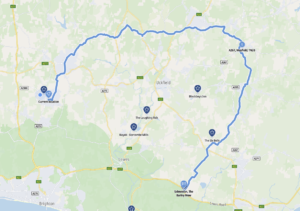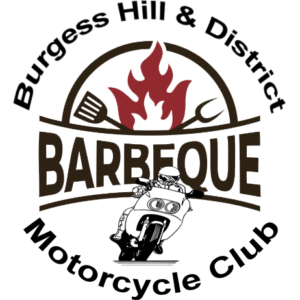Never had it so good?
More of us are riding on British roads than at any time in the last 13 years – and it’s not just because summer has finally arrived.
If the forecast for day-after-day of sunshine isn’t enough to fire you up, how about this? Latest Government figures show we rode 3.5 billion miles last year – 50 per cent more than in 1995.
What’s made the difference? Bikes have got a whole lot better, wages have risen and congestion in cities has worsened – three great reasons to get on two wheels.
A quick survey at the Ace Café found 68% preferred the world of motorcycling in 2004 while 32% thought 1990 (the last time we rode as much as we do today) had more to offer.
Buying Tips
We’ve tapped up TV trader Mike Brewer for his top 10 questions for buyers to ask when looking for a used bike.
Brewer has bought and sold thousands of vehicles and will be known to you from Channel 4’s used car show Deals On Wheels and motoring programme Driven. But he’s also a keen rider. Here’s what he suggests you should always ask before you go to see a bike:
1. “I’m ringing about the bike”. It may not be a question but if the bloke on the other end answers “which bike?” he might be a trader posing as a private seller. This should suss him out.
2. “What’s the mileage?” Just as important is “how have those miles been done?” A well cared-for high-mileage motorway bike will always beat a low-mileage-but-thrashed-and-unloved example.
3. “What are the tyres like?” What tyres are on and how much life is left? Are they a correct match? Bear in mind that replacements could set you back £200.
4. “Has it got supporting paperwork?” If it hasn’t got an M.O.T, walk away (unless it’s not old enough yet, of course). MOTs also provide a reliable check on mileage. Any receipts will also reveal work done, and what has needed fixing.
5. “Is it an import?” If they aren’t sure ask them to look at the registration document. It’s not a problem if the right mods have been made (clocks, headlight dipping to left) but non-standard paint schemes can make it hard to get new bodywork. Some imports have their power restricted.
6. “Is it worth an HPi Check?” An HPi Check will tell you if the bike has been written off, stolen or has finance outstanding. Tell them you’ll do it and they may admit to more.
7. “Any scratches of damage? Ask for honesty. Look at all the images available with their ad on the website. Ask for more pictures to be emailed to you. If they have a video clip of it, ask to see that (some bikes advertised on motorcyclenews.com now come with these walk-rounds – they also give you the chance to hear the bike running).
8. “Will you take an offer?” ONO – or near offer – opens negotiations nicely. If they’ve had a lot of calls they’ll be less likely to shift on price.
9. “Any non-standard parts?” If parts have been changed ask if the originals are also available. If they aren’t, why not? It may be they’ve been changed because the originals were damaged in a crash.
10. “Has it been serviced?” A major service could set you back £300-£400. If it’s due one, you need to know and chip away at the price accordingly. If a dealer has done
the work, ask which one. Give the dealer a call to see what work they’ve done on the bike.
Walker’s buying advice
World Superbike star Chris Walker has been out buying a bike with MCN (see September 1 issue).
All his choices were dealer bikes – which meant he had the opportunity to test ride them.
The process revealed some useful tips we can all use when buying.
Walker says:
Try to ride the bike on roads you know – you’ll have more confidence and be able to better make a comparison with your current or previous bikes.
At least test the bike on the kind of roads you use mostly. Why zip it up any M-way if you know you’ll stick to back-lane action?
Take a mate to play devil’s advocate with you. He might spot the downsides you’ll miss in your excitement.
Check the bike for damage, wear and tear.
Sleep on your decision. Don’t be hurried into making your choice on the spot.
Use MCN road tests (and motorcyclenews.com Bike Reviews) to help you narrow down your selections. Make the final choice yourself.
Don’t forget your driving licence – you won’t get a test ride without it.
Check if the dealer offers insurance for your test ride before you go. If not – what cover does your insurance provide?
Talk to the salesman in advance – you’ve got a better chance of a test ride if he believes your a serious potential buyer
Don’t forget the salesman is there to sell you the right bike – say if you don’t like what you are being offered – he’ll have other options.
Bike sales up again
Bike sales are up for the third month on the trot. September sales are up seven per cent compared to September 2003.
The biggest growth came from sales of big trailies such as BMW’s R1200GS. That part of the market has increased by a massive 55 per cent in a year. Smaller capacity bikes also show strong growth. Scooter sales show a rise of nine per cent over sales in September 2003.
Scooters are now the largest selling category of bike in the country.
Lee Bradshaw of dealer Drayton Croft explained: “We are getting a lot of first time riders as well as returning bikers at the moment who are fed up with sitting in traffic every day on the way to work and they are very keen on the scooters.”
While sports bikes remain popular in the UK the growth in the big trailie market highlights a growing trend towards less sports-oriented bikes.
Bradshaw added: “We’re seeing a lot more people trading in big sports bikes for slower machines. We had one guy the other day who traded in an SP-1 against a Suzuki Mean Streak cruiser. They’re getting fed up with always having to look out for the police and speed cameras.”
Motorcycle sales in general have showed an increase of around seven per cent in July, August and September compared to the same months in 2003.
The Motorcycle Industry Association’s Craig Carey-Clinch, said: “These changes, combined with last month’s Government announcement that the amount of motorcycling grew by around 10 per cent last year while the casualty rate per mile fell is welcome news for everyone.”
Help stop the conmen
Conmen are trying to make thousands from those of us selling our bikes – and it’s time for us to join together and hit back.
Read this story and pass on the details to every motorcyclist you know (send it as a link if you prefer).
Detective Constable Tim Hinks of the Met Police’s economic and specialist crime unit says getting the information to as wide an audience as possible is the key to beating the con.
The fraud works like this. First, a potential buyer contacts you and agrees a price for your bike – but only by email. They never want to meet or talk on the phone.
Then he tells you he’ll send a cheque and have someone pick up the bike. The cheque arrives – but it’s for more than the amount you agreed. The conman then asks you to pay in the cheque, wait for it to clear – and then send back the over-payment by Western Union. Sounds very trusting of them, doesn’t it?
Trouble is, the cheque never clears and the Western Union payment can never be traced – leaving you out of pocket. They don’t bother coming to get the bike – they don’t need to, they’ve already made their cash.
We’ve tried reeling in one of these conmen – and gone so far as getting them to send us a cheque. But DC Hinks says there’s little that can be done to snare the conmen because the cheque is a fake.
“A busy bank will pay the cheque into your account and within 36 hours it appears as ‘cleared funds’. You’ll then send off the excess by Western Union – which takes your funds immediately. When the bank discovers the fraud it’s too late for you – and you lose out.
How to avoid the scams
Placing a classified advert, whether online or in print, can sometimes attract people running scams, but by following some very simple rules you can stay safe and make sure you sell your bike smoothly.
The majority of people selling their bike never encounter a single problem but it is better to be aware of the problems that may arise so you can recognise them if they do.
The first thing to remember and the golden rule to follow is simply this – If it sounds fishy, then it probably is.
Most scams revolve around you sending money to the buyer in some form or another. If any potential buyer of your bike asks you to send them some money, then step away from the deal.
A typical example of this type of scam is a buyer saying that his friend owes him some money, this friend will send you more than your asking price and you are asked to forward the difference to the buyers account. The cheque you are sent will bounce but your transfer to the buyers account will still go ahead leaving you out of pocket. No one will ever come for the bike.
Another example involves the buyer offering to send you a cheque which includes the shipping cost then, in the same manner as above, you forward the shipping money to the guy that is supposed to be picking up the bike. Again you lose your money.
Genuine buyers are unlikely to ever buy your bike without seeing it first so do not accept any cheques or money orders sent by post. Try to do all deals in person and in cash.
Most scams are also conducted by people pretending to be international buyers. It is very unlikely that someone would ever buy a bike to ship abroad without even looking at it. Be very wary of buyers outside the UK and never send money or part with the bike until funds are cleared in your account.
Ultimately if you suspect that there may be something odd about the deal you are doing, then don’t do it. There will be no way to get your money back as your bank is unlikely to be very sympathetic.
A good set of basic rules to follow are these:
- Never send money to the buyer or a third party in any form
- Don’t accept payment from a third party
- Be very wary of international buyers.
- Never deal with buyers that will only communicate by email
- Never give out your bank account details
- Always meet the buyer






